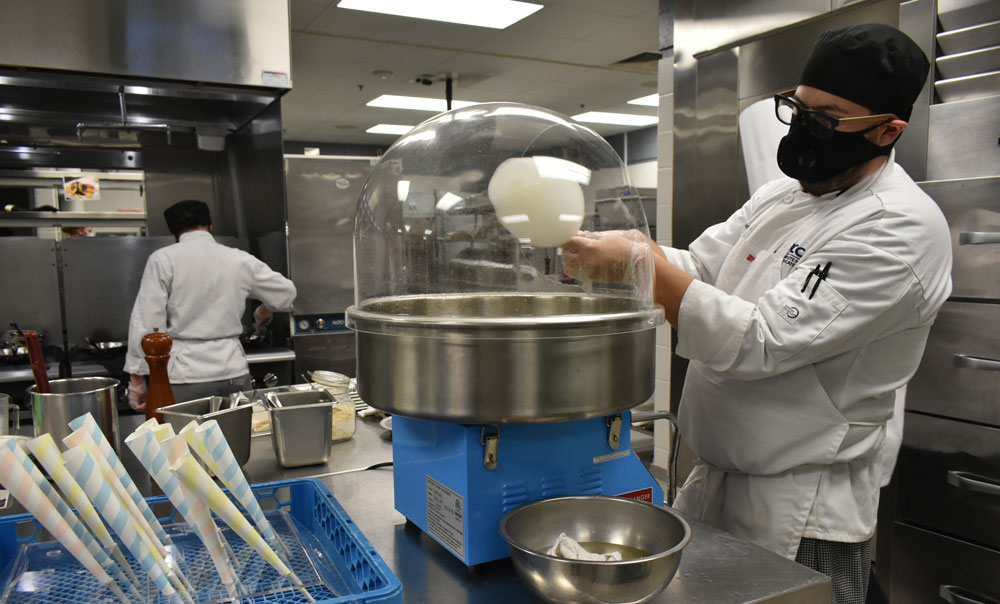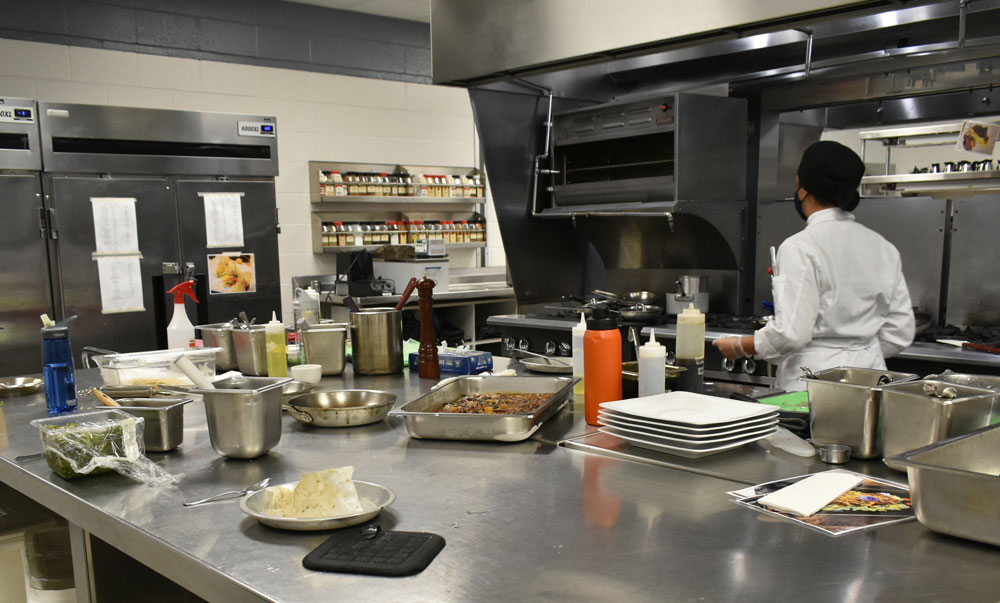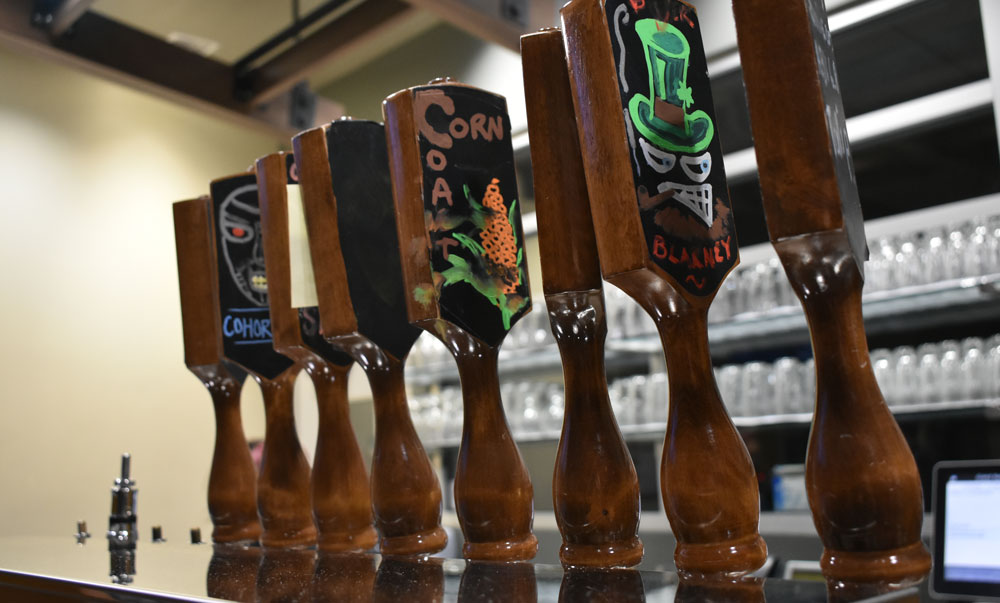Arianna Kruizenga and her fellow wait staff wore masks and gloves to ensure the safety of the four parties sitting at tables spaced six feet apart in The Heritage Restaurant dining room.
But despite the requirements of safe and sanitary food service during a pandemic, they were happy to be back plating and serving hand crafted, bite-sized appetizers and wok-roasted shrimp to hungry patrons. “How is everything tasting? Is there anything else I can get for you?” Arianna asked attentively as she served her tables.
Arianna works at the fine dining public restaurant, which is staffed by students in GRCC’s Secchia Institute for Culinary Arts program and supervised by professors. The restaurant, located inside the Wisner-Bottrall Applied Technology Center, reopened Sept. 9 after being closed since March.
“We found out school was canceled in the middle of a wine tasting last semester,” said Arianna, who is working toward her culinary arts associate’s degree. “It was a crazy stressful time for those of us trying to graduate.”
But now, with aprons on–but masks as well– they are back to business. Secchia Institute professor Chef Holly VanRyn said the GRCC faculty put a lot of work into a plan for classes to work this semester.
“It was a collaborative effort from all departments to make classes open this fall,” VanRyn said. “I’ve witnessed so much resilience and such positive attitudes from the students and they have been open to changes and following new safety protocols.”
The Heritage reopened to the general public starting with limited dinner reservations by phone. After a successful first week, the dining room is now open for lunch hours.
“Our guests have been incredible. We’ve received a great response since re-opening and great feedback on the menu items,” VanRyn said.

Real-life Restaurant Experience
The Secchia Institute refers to The Heritage as a culinary classroom, where students have their capstone– or culminating experience– for the program’s Restaurant Management and Leadership class. Students learn to provide a pleasant dining experience from seating guests to the final check, while serving a three-course meal in between.
They work as wait staff, bartenders and cooks and play a role in the creation of everything that ends up on a patron’s plate. Chef Kevin Dunn sets the dinner menu for the whole semester with contributions from students in Culinary Arts, Baking and Pastry Arts and Craft Brewing programs.
“Everything is made in-house by students,” he said.
Students use a variety of food-preparation techniques to create decadent dishes and desserts like Benton’s Bacon Wrapped Filet Mignon and Hazelnut Caramel Eclairs. They also become menu experts, informing patrons of unfamiliar ingredients.
Beverages aren’t to be forgotten when it comes to polished culinary skills. At GRCC’s Fountain Hill Brewery next door, students learn the science of brewing and craft beer service. (Fountain Hill is not open to the public this semester, but students are still brewing beer to serve in the restaurant.)
Reimagining the Culinary Classroom
Kezia Stinson’s love for baking stems from a young age. Her passion led her to the Kent Career Tech Center in high school, with transferable credits to GRCC.
“Food brings people together and good service brings smiles to people’s faces,” Kezia said. “I love learning new things from Chef Dunn and it’s a lot of fun when family and friends visit the restaurant and get to experience first hand what we do.”
The pandemic set her back a bit, schedule-wise. Originally planning to graduate in spring 2020, Kezia remains optimistic about gaining a more realistic food service experience this semester and graduating in December.
“This year has served as a learning experience and you learn as you go,” Kezia said. “GRCC has been thorough and I applaud the faculty’s attention to detail.”
The pandemic halted students’ progress because they were unable to learn in their usual classroom. In lieu of in-person instruction, faculty got creative with assignments and course materials. Dunn created a “lab in a bag” for students to prepare foods at home.
“Students were given the materials to brew tea and asked to analyze the process and their results,” Dunn said. “We also did a shrimp and hollandaise sauce ‘lab in bag’ where students were asked to take a video of their cooking and plating.”
Dunn additionally uploaded videos of cooking demonstrations online.
“It’s a positive thing to have come out of the pandemic,” VanRyn said. “We now have all this educational footage archived for future classes and are more equipped for online instruction.”
This semester, culinary lectures are online, with students learning in-person two days a week in hybrid lab classes.
Secchia Institute’s program director Chef Werner Absenger expressed his excitement to re-open The Heritage so students can resume their education in a safe, controlled environment.
“The Heritage Restaurant provides one of the best fine-dining experiences in West Michigan. We’re proud of that,” Absenger said.

















